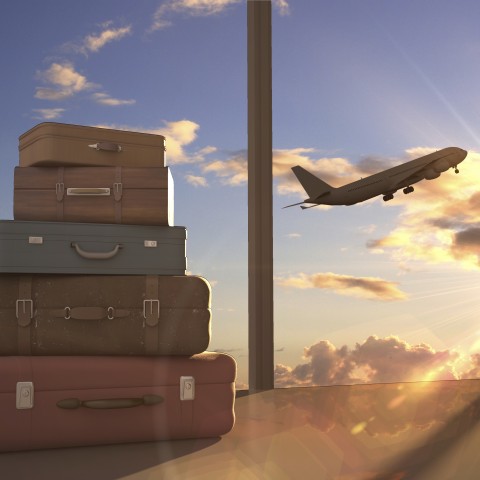If you could take three days off work or school starting right now, how would you spend your time?
We all need a break sometimes. Whether we relax at home, enjoy the outdoors, pursue our creative interests, or spend time with friends, taking time away from our everyday life can work wonders.
Each year, most Americans get this break in the form of Labor Day weekend. In this article, EnglishClass101.com will teach you about the origins of Labor Day in the United States, how it’s celebrated today, and some relevant vocabulary.
Let’s get started!

1. What is Labor Day All About?

You’re probably familiar with the concept of Labor Day already, and I’m betting that you celebrated yours back in May. Around the world, Labor Day (or International Workers’ Day) is a special occasion for workers. They can take the day off and enjoy the final days of summer with friends, family, and loved ones.
But why do we celebrate Labor Day in the first place? In the U.S., we celebrate this holiday to show appreciation toward workers, respect workers’ rights, and give workers the rest they deserve.
You may be wondering what makes the American version of this holiday special, and why we hold it on a different date than most of the world. For that, we’ll need to look at the historical context…
Labor Day History
In the United States, the nineteenth and twentieth centuries saw much dissatisfaction amongst workers, and for good reasons. During this period, there was no way to make a decent living unless you were skilled in a field like mechanics or art. Many people worked in factories and were expected to work long hours, in dangerous environments, and with little or nothing to show for it.
In 1894, workers of The Pullman Company (a railroad car manufacturer) decided enough was enough. During a major economic depression in the United States, The Pullman Company had laid off many of its workers and severely reduced pay for those remaining. The workers organized a union (called the American Railway Union) and began a strike. Namely, they refused to operate any trains that carried Pullman sleeping cars. The Pullman Strike ended in violence, and many lost their lives; the union’s leader was imprisoned, and later became a notable supporter of socialism.
While this event was tragic, it was not the only strike to occur during this period. The high volume of strikes, and their negative impact on the United States, encouraged people to begin honoring workers and making compromises.
Labor Day in the U.S. originated as a way for the government to mend things with the working population. We celebrate it in September instead of May because Europe underwent a labor crisis at around the same time as the U.S. Then-President Grover Cleveland feared that if he didn’t do something quickly, the same communist movements that started in Europe would sprout up in the U.S. Thus, Labor Day was set to be celebrated on a different date than Europe’s International Workers’ Day.
- → Do you want to pick up some useful vocabulary? See our list of words related to Jobs / Work
2. When is Labor Day in the U.S.?
Each year, Labor Day takes place on the first Monday of September. For your convenience, here’s a list of this holiday’s date for the next ten years.
- 2020: September 7
- 2021: September 6
- 2022: September 5
- 2023: September 4
- 2024: September 2
- 2025: September 1
- 2026: September 7
- 2027: September 6
- 2028: September 4
- 2029: September 3
Because this holiday takes place on a Monday, many American workers get a full “Labor Day weekend” (Saturday, Sunday, and Monday off work)!
- → See our list of the Top 10 Weekend Activities to learn how Americans might spend their time off!
3. Labor Day Traditions & Celebrations
As mentioned, Labor Day weekend takes place near the end of summer. This means that students will soon be going back to school (which often starts just after Labor Day), and outdoor-lovers will be spending more time inside as the weather gets cooler. Labor Day weekend is the perfect time to enjoy those final days of summertime freedom with those we care about.
One of the most iconic Labor Day traditions is that of barbecuing. American neighborhoods, parks, and other public locations are filled with the smells of barbecuing meats, vegetables, and other summertime favorites. When I think of a Labor Day picnic, I imagine a cheap paper plate loaded with potato chips, watermelon, baked beans, hot dogs, potato salad, and all the dessert items one could possibly want. Mmm.
Labor Day is also a day of travel. Many people will drive (or fly) several hours to spend the holiday with their family in other cities or states. Others opt to travel to larger cities for more excitement (such as massive parades and incredible fireworks shows) or smaller cities for a quieter, more peaceful celebration.
Of course, the long weekend is also the perfect time for companies and businesses to promote their products/services. There are always plenty of Labor Day sales, which usually begin a few weeks before the actual holiday. The most popular discounted items include furniture and electronics, which are normally too expensive to purchase on a whim.
Labor Day also marks the beginning of professional (and college) football season in the United States. The very first pro football game of the season takes place on the Thursday after Labor Day (and I know people who get more excited about football season than Labor Day).
- → Check out our vocabulary lists of popular U.S. Foods and the Top 10 Summer Sports
4. White After Labor Day

Have you ever heard the phrase: “Don’t wear white after Labor Day?”
In times past, it was considered a fashion faux-pas to wear white after Labor Day (and before Memorial Day). Because of the fashion trends of the time, white was only to be worn during the summer, at weddings, or when on vacation.
Over time, this “rule” has changed, though. Some people may still say that you shouldn’t wear white after Labor Day, but it’s not taken as seriously as it was in years past.
- → Here are the names of common Summer Clothes and Accessories
5. Important Vocabulary for Labor Day

Let’s review some of the vocabulary words from this article!
- Weekend [n] – Saturday and Sunday; the end of the workweek
- Holiday [n] – a special day for celebration or commemoration
- Monday – the first day of the workweek
- Vacation [n] – time away from work or school
- Sale [n] – a special deal or discount on certain items or services
- Travel [n] – a word used to describe the action of traveling somewhere
- September – the ninth month of the Gregorian calendar year
- Picnic [n] – a meal eaten outdoors, especially with family, friends, or a romantic partner
- Job [n] – the work that a person does for a living
- Employee [n] – a person who works for a company, under a person of higher authority
- Right [n] – the automatic entitlement to have something or do something
- Strike [n] – an event where workers refuse to do their jobs in order to receive benefits
- Worker [n] – someone who works
- Work [n] – a job or career
- Union [n] – a group of workers who join together to bargain for a collective benefit
- Movement [n] – a group of people joining together in order to promote an idea
- Labor [n] – any kind of work, though it usually refers to physically demanding work
- Career [n] – a lifelong pursuit toward specific work- or education-related goals
- Labor Day – a day for American workers to take the day off
- Parade [n] – a large procession that often involves music, dancing, and floats
You can find each of these words on our English Labor Day vocabulary list to hear their pronunciation and add them to your flashcard deck!
Final Thoughts
While it’s seen as a fun and relaxing holiday today, Labor Day has roots in some pretty dark times for the U.S. But on the other side of those dark times, the U.S. has become a country much more attuned to the needs and rights of workers.
What are your thoughts on Labor Day in the United States? Does your country celebrate International Workers’ Day? And if so, how do you spend your time off? Let us know in the comments!
If you want to learn more about U.S. culture and the English language, visit our blog page. We update it regularly with valuable information that you can start using today! And for more information on work in the U.S., see our article about How to Find a Job in the United States.
Happy Labor Day from the EnglishClass101.com team. 😀










